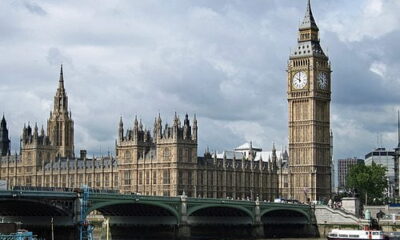

News
Childhood Obesity: Government Action Plan A Wasted Opportunity
Last week, the UK Government published its long overdue ‘action plan’ to reduce childhood obesity.
Despite the fact that a third of children aged two to five are overweight or obese, the strategy proposed by ministers to tackle what has become a global epidemic is unlikely to go far enough.
As we explore in our latest Positive Impact Portfolios quarterly update, obesity is defined as excessive fat accumulation that presents a risk to health. This can lead to a number of serious conditions including type 2 diabetes, coronary heart disease, breast cancer, bowel cancer and stroke.
Most children (and adults) are consuming too many calories, in particular sugar. The new approach will focus on helping children to enjoy an hour of physical activity every day, with at least 30 minutes delivered in school time. Whilst regular physical activity reduces the risk of developing cardiovascular disease, Type 2 diabetes, dementia and some cancers , various research studies in the UK and the US have shown that physical activity is of little help when it comes to weight loss . You cannot outrun a bad diet – just take a look around.
The government also announced that food and drink companies will be ‘challenged’ to reduce sugar content by 20% across a range of products. But there is no obligation and a number of products will be out of scope including milk-based drinks and heavily sweetened fruit juices.
A recent piece of research has also revealed that excessive sugar consumption increases the dopamine levels, controlling the brain’s reward and pleasure centres in a similar way to drugs like cocaine. Bearing that in mind, we believe that a ban on junk-food television adverts, a reduction in portion size, and limiting the use of end-of-aisle display for high sugar content products would be far more effective in helping to reduce obesity.
Following a path trodden by of a number of other developed countries, the UK will introduce a tax levy on soft drinks in April 2018. This is a courageous decision despite intensive lobbying by the drinks industry. Perhaps they are worried by what happened in Mexico? A 10 per cent tax on sugar sweetened beverages cut sales of sugary drinks by 12 per cent.
The confirmation of sugar tax is great news, but can we rely on the industry to self-regulate? Shareholders expect companies to make more and more money by selling products around the world. The comparison with the tobacco industry is interesting and worrying. The food industry is following their practices, by emphasising personal responsibility and funding research programs. The link between high sugar intake and obesity has been proved for more than 30 years and it is now urgent that the Government stands up to pass the necessary laws.
At EQ, we take the issues around obesity very seriously. Our Positive Impact Portfolios invest in companies that have a positive impact on society, health being a key theme. The food and beverage companies we invest in put health and nutrition issues at the top of their agenda and have been rated by the highest scores according to the Access to Nutrition Index . However, we are continuing to engage with our fund managers to ensure that further progress is being made in order to really tackle the causes of obesity.


 Environment12 months ago
Environment12 months agoAre Polymer Banknotes: an Eco-Friendly Trend or a Groundswell?

 Features11 months ago
Features11 months agoEco-Friendly Cryptocurrencies: Sustainable Investment Choices

 Features12 months ago
Features12 months agoEco-Friendly Crypto Traders Must Find the Right Exchange

 Energy11 months ago
Energy11 months agoThe Growing Role of Solar Panels in Ireland’s Energy Future





























